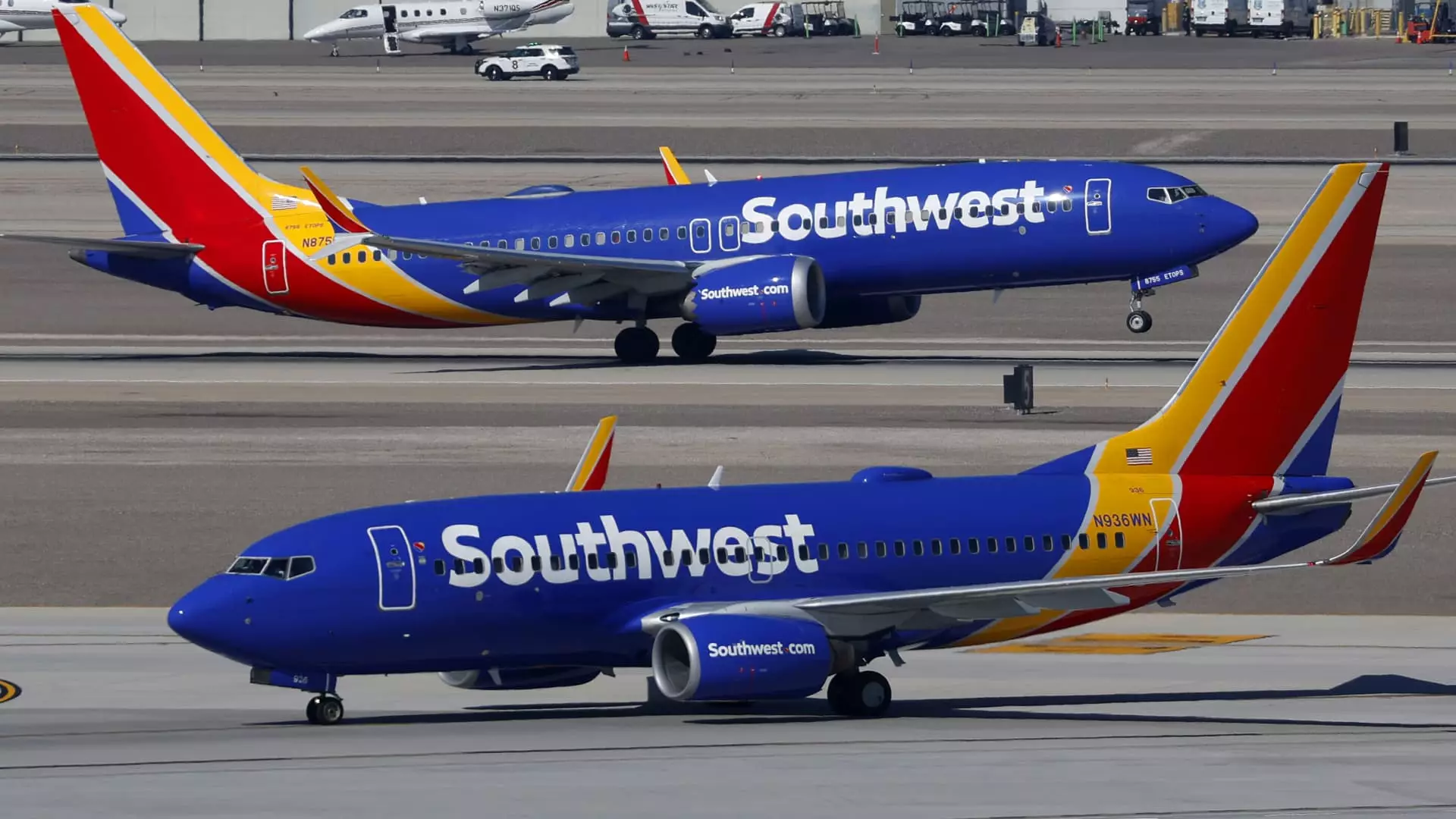For over five decades, Southwest Airlines has championed a unique and beloved approach: open seating. This policy fostered a sense of spontaneity, egalitarianism, and relaxed air travel that distinguished Southwest from its competitors. Yet, the airline now faces an undeniable harsh reality—industry pressures and profit demands are forcing a dramatic departure from tradition. Starting January 27, passengers will no longer claim their seats upon boarding; instead, they’ll be assigned in advance, marking a stark shift that reflects broader economic and strategic ambitions but also risks alienating loyal customers.
This change isn’t merely logistical; it’s emblematic of a broader transformation in Southwest’s identity—from a customer-centric pioneer to a more profit-driven enterprise. While some may see it as an inevitable response to a competitive landscape that rewards efficiency and ancillary revenue, critics might argue that this move undermines the very essence of Southwest’s brand: freedom and simplicity in air travel. The airline’s decision to eliminate open seating is as much a reflection of its desperation to adapt as it is an acknowledgment that its original model has become less sustainable in a market increasingly dominated by more profitable rivals that have embraced assigned seating for years.
Strategic Overhaul: A Costly Pursuit of New Revenue Streams
Southwest’s leadership is clearly betting heavily on this transformation. Announced alongside plans to introduce new fare types and charge fees for checked baggage, these policies are designed with a clear revenue-raising intent. The airline projects that these initiatives will add hundreds of millions of dollars to their annual earnings, signaling a shift from pure service to aggressive monetization strategies. But this pursuit of profitability comes at a cost—potentially sacrificing the airline’s core appeal and loyal customer base for short-term gains.
The decision to reconfigure cabin layouts for extra-legroom seats, implement tiered boarding groups, and introduce fees that rival competitors exemplifies a broader trend: prioritizing the bottom line over customer goodwill. This recalibration of Southwest’s business model raises uncomfortable questions. Is this relentless focus on ancillary services and operational efficiency sustainable, or merely a desperate attempt to stave off stagnation? Recent trends in the airline industry suggest that, unless handled delicately, such aggressive tactics risk eroding trust and loyalty among their most dedicated passengers.
The Human Element: Will Customers Feel Alienated or Embraced?
Beneath these strategic shifts lies a fundamental tension—how will passengers react? Southwest’s open seating policy fostered a sense of community and spontaneity that many travelers cherished. The joy of arriving early, staking a claim on a preferred seat, or simply enjoying the unpredictability of air travel added a human touch to flying that few airlines could replicate. Removing this element may streamline operations but also risks stripping away an essential part of the customer experience.
The new boarding process, with its organized eight-group system, attempts to balance efficiency with loyalty. Top-tier frequent flyers will board first, but seat selection will now influence their place in line rather than randomness or social equity. For many, this means a shift from democratic spontaneity to a tiered, market-driven hierarchy. Although the airline claims to offer optional seat purchases and priorities for credit card holders, critics argue that it ultimately commodifies personal preference and reduces the communal spirit that once defined Southwest.
Will families, who valued the freedom to choose seats together, adapt smoothly to this new paradigm? Or will frustration mount as the airline’s pioneering openness gradually morph into a more conventional, profit-centric model? It’s questionable whether the emotional connection Southwest cultivated with its open seating policy can survive these changes unchanged. As airlines continue to prioritize revenue, the risk is that customer loyalty—built on simplicity and fairness—will erode, and Southwest might find itself caught between profit motives and the desire to retain its core identity.
This bold pivot toward assigned seating and ancillary revenue streams is nothing short of a gamble. For a company that once championed a relaxed, egalitarian approach to flying, it now risks alienating its most loyal customers in pursuit of short-term financial growth. While the airline’s strategic calculus is understandable within today’s cutthroat industry environment, it raises serious doubts about whether Southwest can reconcile its traditional values with the demands of modern air travel. Ultimately, this move might accelerate its path toward profitability but at the peril of the very community and culture that once made Southwest a standout—risking a future less about the joy of flying and more about the cold calculus of revenue.

